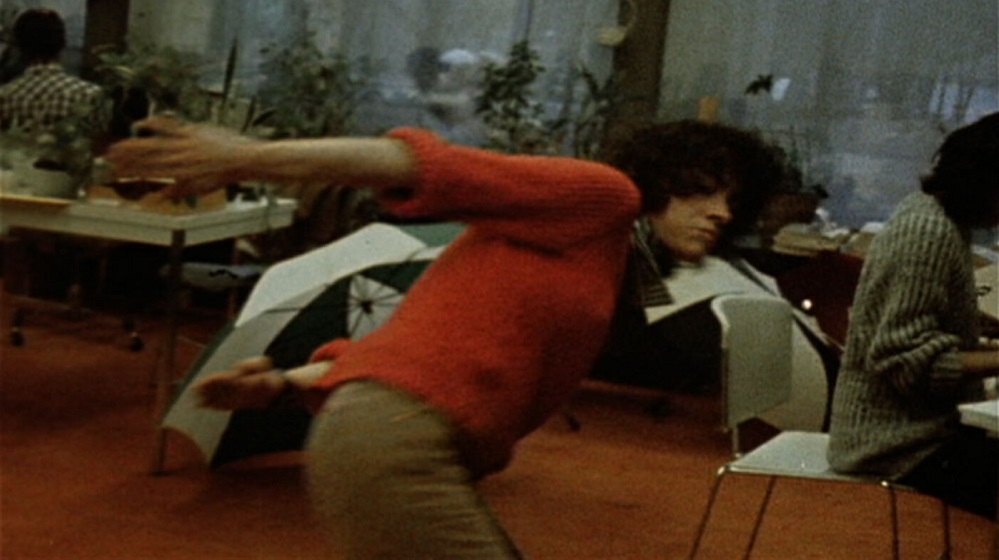Privilege, Yvonne Rainer, 1990, EEUU, 103'
American filmmaker and dancer Yvonne Rainer incorporates an invaluable racial and class perspective in her analysis of the prejudices surrounding the menopausal female body. Combining dramatisation and interviews, she tackles the stereotypes and binary myths that affect the sexuality of Hispanic, African-American and white American women.
Foi Pena Q…, Los Hermanos Wagner, 1978, Brasil. 5'16''
Animation filmed in Super-8 that scathingly describes the colonising process suffered by the inhabitants of Brazil at the hands of both Portuguese and American imperialism. An acidic critique with cut-outs and gouache to the rhythm of fado music.
Crops and robbers, Leeds Animation Workshop, 1986, Reino Unido, 15'
Food is a weapon used in this monopolistic game in which the powers of Europe and the US wield the cards of colonialism, slavery and racism. In a brilliant combination of animation and live action, the feminist collective Leeds Animation Workshop captures the history of the West’s exploitation of the lands of the Global South.
Film Ist. nº9: Conquista, Gustav Deutsch, 2002, Austria, 10'26''
Film Ist. Conquest is the ninth of 12 found footage films in which Gustav Deutsch dissects and re-edits the form and content that reigned supreme during the first 30 years of cinema. In this anthropological piece, he alternates between the wild, the indigenous subject, the female body and the conquest of territories, raising awareness of the appropriation and exoticisation of the image of African people.
Macumba, Dietmar Brehm, 1995, Austria, 18'
Film is. Conquest is the ninth of 12 found footage films in which Gustav Deutsch dissects and re-edits the form and content that reigned supreme during the first 30 years of cinema. In this anthropological piece, he alternates between the wild, the indigenous subject, the female body and the conquest of territories, raising awareness of the appropriation and exoticisation of the image of African people.
Workers Leaving the Factory (Dubai), Ben Russell, 2008, EEUU, 8'
A decolonial reinterpretation of the film La Sortie de l'Usine Lumière à Lyon (1895), the first film in history to be shown to the public. This time, instead of French workers leaving the Lumière brothers' factory, it’s Asian workers who abandon their jobs at a megalomaniac skyscraper construction site.
Nescafé-Dakar, Lluís Escartín, 2008, España, 34'
This film is a declaration of intent, a desire to create a piece that speaks out about colonialism and, as its protagonist exclaims, against "silly European festivals". Filming an unfamiliar routine becomes quite exotic when two Spanish reporters are stranded in a hospital in Dakar, their only entertainment the life they can see through the window.
Black and Tan Fantasy, Dudley Murphey, 1929, EEUU, 18'17''
Musical performances by Duke Ellington and his band are interspersed with a tragic fictional story in this important short about the African-American influence of jazz in 1920s Harlem. Among other African-American realities, it reveals how the historic Cotton Club refused blacks admission whilst they were hired to entertain, cook and serve its New York audiences.
A program by Julia Martos





